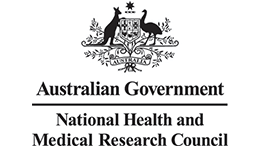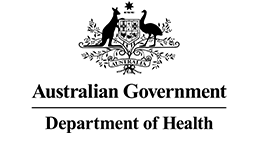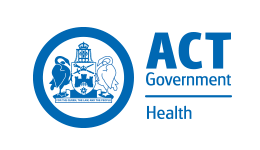Mapping the role of health services in prevention

Status completed
Start Date
End Date
This project looked at the perceptions prevention in the health system, and what can be done to make it easier for healthcare professionals to raise the issue of obesity.
It described the benefits of this in relation to the overall prevention system.
Introduction
This research investigated how professional perspectives, boundaries and relationships affect how overweight and obesity prevention is incorporated into health services. The project examined how key stakeholders such as policy makers, managers, clinicians and consumers perceive preventive care and how these perceptions may enable or block prevention activity. The focus was on non-admitted health services for adults.
Featured project resources
-
Role of health services in the prevention of obesity
Resource category:Videos
Date
Featured project news
-
Obesity stigma is a barrier to action
News Category: Prevention Centre NewsDate -
The obesity paradigm and the role of health services in prevention: a systems overview
News Category: Prevention Centre NewsDate -
How health services view their role in the prevention of overweight and obesity
News Category: Prevention Centre NewsDate
About
Why aren’t health professionals telling us we’re fat? Perceptions of overweight and obesity prevention in non-admitted health services
Project titleWhat is the issue?
Chronic disease is the major cause of death and disability in Australia. Half of all Australians have at least one chronic disease, and many have more than one. The cost to the health system is significant, with more than a third of the Australian health budget attributed to chronic disease management. A major risk factor for many chronic diseases is being overweight or obese. With two thirds of the Australian population classified as overweight or obese, it is an issue that health services cannot ignore.
Interventions to prevent obesity can improve quality of life and productivity, reduce morbidity and mortality, and reduce demand for healthcare. Health services have a key role in advocating for population health prevention strategies as well in incorporating prevention into clinical interventions.
There is strong evidence for the role of general practice and primary healthcare in obesity prevention. There is also emerging evidence regarding interventions that could be incorporated into other parts of the health system, such as community health services, pre-surgical clinics and obstetric services.
However, despite the evidence about effective interventions, prevention activity is not routinely integrated into health services. In part this can be attributed to practical barriers such as staff skill levels, time and a lack of financial incentives. A significant philosophical shift is required to incorporate chronic disease prevention into services primarily designed to manage acute ill health. First though, we need to better understand how obesity and obesity prevention is perceived across the various levels of health care delivery and how these perceptions may enable or impede the incorporation of prevention into routine care.
How did the project address the issue?
This research investigated how professional perspectives, boundaries and relationships affect how overweight and obesity prevention is incorporated into health services. The project examined how key stakeholders such as policy makers, managers, clinicians and consumers perceive preventive care and how these perceptions may enable or block prevention activity. The focus was on non-admitted health services for adults.
Our qualitative study involved interviews and observations with clinicians in the ACT. The study approached the question, ‘Why aren’t health professionals telling us we’re getting fat?’ from a number of perspectives, including:
- Do health professionals feel comfortable raising the issues of weight? Routinely weighing all patients and asking about nutrition and physical activity has been shown to have a positive impact on health, yet health professionals do not routinely weigh people or ask them about food and physical activity.
- Is obesity a disease or a social issue? Health services generally focus on illness treatment and disease management so how does the concept of prevention sit within this paradigm? Do health services see prevention as ‘their job’?
- Are health services, health professionals and consumers open to alternative models of care? The medical model has been shown to be the least effective in supporting people with lifestyle changes.
Relevance for practice
The project supported policy makers and clinicians to enhance the prevention system by identifying opportunities for incorporating overweight and obesity prevention into health services. Our findings may then allow models of care to be developed that best meet population need while supporting clinicians to develop prevention skills and knowledge.
What were the outcomes?
This project provided information to support the integration of obesity and overweight prevention into non-admitted health services. It described the benefits of this in relation to the overall prevention system.
News and media
-
Obesity stigma is a barrier to action
News Category: Prevention Centre NewsDate -
The obesity paradigm and the role of health services in prevention: a systems overview
News Category: Prevention Centre NewsDate -
Community health and prevention: there’s a will but not a way
News Category: Prevention Centre NewsDate -
How health services view their role in the prevention of overweight and obesity
News Category: Prevention Centre NewsDate
Resources
-
Role of health services in the prevention of obesity
Resource category:Videos
Date
Publications
Other publications
Presentations
- How do health services view their role in the prevention of obesity? Menzies Centre for Health Policy, Emerging Health Policy Research Conference, Sydney. July 2017
- Why aren’t health professionals telling us we’re fat? World Congress on Public Health, Melbourne, April 2017
- Why aren’t health professionals telling us we’re fat? The role of health services in overweight and obesity prevention. Menzies Centre for Health Policy, Emerging Health Policy Research Conference, Sydney. July 2016
People
Lead investigators
Project team
-
Professor Lucie Rychetnik
The University of Sydney -
Associate Professor Therese Riley Associate Professor Therese Riley has finished working with the Prevention Centre.
Victoria University -
Professor Andrew Wilson AO
The University of Sydney -
Associate Professor Sonia Wutzke Associate Professor Sonia Wutzke has finished working with the Prevention Centre.
(1970-2017)












